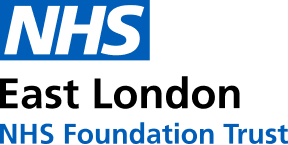Objectives
- Increase MUS/BDD patient satisfaction through adequate treatment, signposting and care
- Ensure ALL patients feel understood
- Improve engagement techniques between clinical professionals and MUS/BDD patients
- Deliver an integrated care package incorporating best practice from primary and secondary care
- Reduce:
- the intensity and frequency of somatic complaints and improve functioning in somatising patients
- unplanned / unnecessary attendance in primary and secondary care.
Through the delivery of a holistic care pathway MUS/BDD patients are supported, and encouraged to take an active role in their own health care which ensures better health outcomes.
Care Pathway Elements
Participating GP surgeries undergo specialist training regarding recognition/identification and best practice points for MUS patients (based upon the experiences from somatoform disorder/MUS clinics in East London NHS Foundation Trust and also utilising the NHS Commissioning support for London training package .
One day trainings are delivered to all practice staff by a team of experts: consultant specialist in psychosomatic medicine, psychologist and BOPT practitioner.
Identification and assessment
Applying systematic healthcare technologies, a case-finder system is implemented at each surgery that provides the care pathway. Using an algorithm for patient identification the electronic database/filing system is scanned for identifiers of patients who potentially fit the criteria for MUS diagnosis. Criteria will include service utilisation in the absence of coded significant and associated physical health diagnosis e.g.:
- Surgery attendances
- Referrals to specialist services
- A&E attendances
- Hospital admissions
Practice staff are taught how to apply the case-finder clinical algorithm: pain in different locations, non-specific complaints affecting multiple organ systems, repeated complaints of fatigue or exhaustion, symptoms occur in the context of a stressful lifestyle or stressful life events, somatisation “plus” (anxiety/depressive symptoms).
All identified patients are coded using the read code 16h (unexplained symptoms continue).
Engagement: Meeting the patient "at home", i.e. at the level of and fully acknowledging their bodily complaints and associated problems.
Given the specific characteristics of this patient group and their health/explanatory beliefs, a range of active engagement processes is employed, including:
- open 45 minute baseline interview with interest in and time for the physical complaints (how, when, where, under which circumstances, when less…)
- utilising a range of in-debt somatic symptom questionnaires, health related quality of life measures, treatment satisfaction scales
- provision of specific information leaflets distributed by the GP
- patient health advice/psychoeducation groups or individual sessions (2-4 sessions per patient)
- signposting to secondary care somatoform disorder clinic for more complex patients (structured systematic assessment and treatment clinic).
Treatment/Interventions: (according to patient choice; 8-10 sessions):
Group sessions explicitly focusing upon and engaging with bodily symptoms in therapy (Psychoeducation, Mindfulness Based Stress Reduction and Body Oriented Psychological Interventions offered as "Strategies for Better Living Groups")
(for more details regarding the interventions please refer to information under Training)

